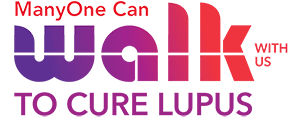
Certainly, advocacy is absolutely necessary to generate funding for the National Institutes of Health (NIH) and other federal organizations, as well as for groups that support and conduct lupus research. But patient involvement is also critical to opening pathways to discovery.
“Just helping to raise money isn’t enough,” said Diane Gross, National Director of Advocacy and Programs at the Lupus Research Alliance. “We need people to be part of research. There are more clinical trials in lupus than ever before, so there are a lot of opportunities for people to get involved — yet there is not enough patient participation, particularly among minority groups.”
Visit LupusTrials.org to learn more about clinical trials and explore studies that might be right for you.

The Lupus Research Alliance is working hard to inform the lupus community about clinical trials so potential new ways to diagnose and treat lupus can be tested and approved by the U.S. Food and Drug Administration (FDA).
For instance, to help ensure greater diversity among trial participants, the Lupus Research Alliance recently launched the Lupus MultiCultural Engagement Partnership with the National Minority Quality Forum. A full report of the group’s (NMQF) inaugural meeting will be released this fall to inform development of new strategies that can help increase enrollment of traditionally underrepresented populations in lupus clinical research.
This fall, the Alliance has partnered with the digital health company, Antidote, to better understand patient perspectives on medical research. We invited the lupus community to take part in a national survey.
In addition, the Lupus Research Alliance is a champion for the NIH All of Us Research Program, a large-scale effort to gather data from at least one million Americans “to improve health outcomes, identify new treatments for disease, and begin a new era in preventive care and medical treatment.” “The more we know about what makes each person unique, the more customized health care can become,” notes Dr. Francis Collins, NIH Director.
Incorporating the patient perspective in the drug development process is also why the Lupus Research Alliance worked with the Lupus and Allied Diseases Association and the Lupus Foundation of America on a collaborative program called the Patient-Focused Drug Development (PFDD) Initiative to inform FDA officials reviewing potential new treatments about the needs of people with lupus.
Patient advocacy also impacts the pharmaceutical industry. Today, biopharmaceutical companies are working with advocacy groups more frequently and closely than ever to ensure that patient priorities are always considered as potential therapies are developed. This relationship is expected to greatly speed the therapeutic discovery process.
The Lupus Research Alliance is proud of our lupus community. Together we have spoken out and together we have been heard. Our greatest rewards have been the ground we have gained … the bills that have passed … and seeing people become empowered to step up and take action.




